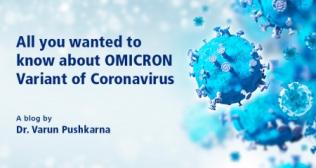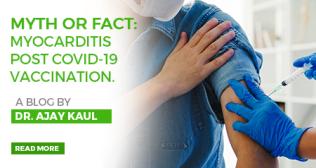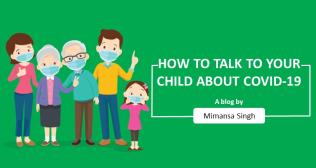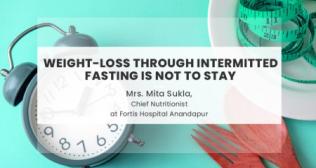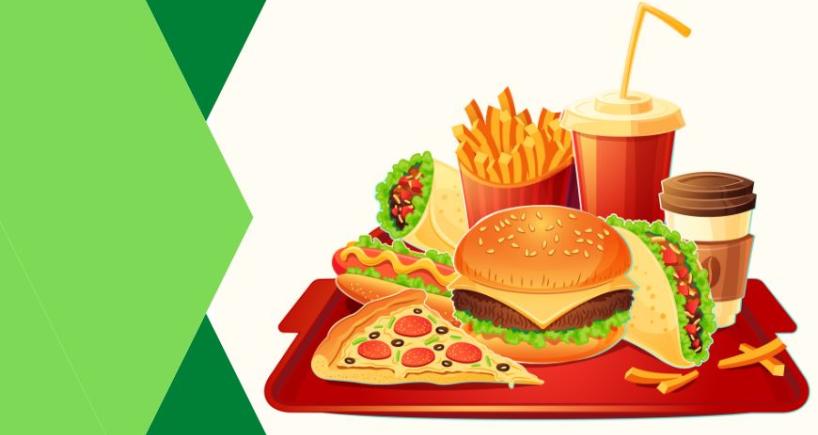
10 Harmful Effects of Junk Food: Potential Health Risks and Dangers
There’s no denying the fact that junk food has gone global. It may be difficult to resist the lure of this sweet, fatty, and tasty food that is now can be found just about everywhere. Yet, we should not forget that consuming junk food regularly can have negative effects on our general health and well-being. ‘Junk foods’ refer to foods that contain a lot of calories, but have little nutritional value.
These foods are high in calories, fat, sugar, salt, and processed carbohydrates, but low in nutrients such as vitamins, minerals, and fiber. In this article, doctors at Fortis Hospital, Mulund, explore the scientific evidence behind the adverse effects of junk food consumption on health.
Why junk food is bad for your health?
A lot of research has shown that eating junk foods (such as hamburgers, fries, cakes and biscuits, sugary sodas, etc) regularly can put you at risk for obesity and other chronic diseases, including heart disease, diabetes, and cancer. Here are 10 major harmful effects of eating junk food you should know:
10 harmful effects of eating junk food
- Cardiovascular problems
- High cholesterol
- Diabetes
- Kidney damage
- Obesity
- Liver disease
- Cancer
- Dental cavities
- Depression
- Skin problems
1. Cardiovascular problems
One of the major detrimental side effects of junk food consumption is increased cardiovascular disease risk. A large Harvard study showed that eating high amounts of red meat and sugary treats may trigger inflammation, increasing the risk of heart disease and stroke. However, a diet rich in vegetables, fruits, and other anti-inflammatory foods can reduce the risk while promoting cardiovascular health.
2. High cholesterol
Diets high in saturated fat can raise the levels of low-density lipoprotein (LDL) cholesterol, or ‘bad’ cholesterol. Avoid or limit the intake of junk food and other unhealthy high-cholesterol foods to reduce your risk while creating a more favorable LDL-to-HDL ratio. High-density lipoproteins (HDL), also known as ‘good’ cholesterol, helps remove other types of cholesterol from your bloodstream.
3. Diabetes
Research has shown that junk food may raise the risk of developing diabetes in various ways. For instance, foods that are high in calories and low in nutrients break down quickly in the body, which causes a rapid rise in blood sugar levels. Regularly eating junk food may lead to weight gain and excess body fat, which are major risk factors for developing type 2 diabetes. Junk foods are usually high in added salt, which can contribute to high blood pressure linked to an increased risk of type 2 diabetes. Junk food can also raise the levels of triglycerides due to the high content of trans and saturated fats. High levels of triglycerides can raise your risk for type 2 diabetes. Make healthier food choices to reduce your risk of developing diabetes and help manage the condition, in case you have it.
4. Kidney damage
Eating junk and processed foods can take a huge toll on your kidney health. Researchers reported in a 2016 study published in the journal Experimental Physiology that eating junk food can cause damage to your kidneys as much as diabetes. Maintain a healthy diet and lifestyle to promote and protect your kidney health.
5. Obesity
Consuming energy-dense and nutrient-poor foods, such as junk food, is associated with an increased risk of obesity, which has been declared an epidemic irrespective of age, gender, or ethnicity. Obesity is also a major risk factor for heart disease, respiratory problems, cancer, and many serious chronic conditions. Being aware of the adverse effects of eating junk food and making healthier lifestyle choices will help you avoid unhealthy weight gain and promote good health.
6. Liver disease
Diet plays a major role in the development and progression of liver disease. Several studies have shown that excessive consumption of foods that are loaded with unhealthy fats, proteins from meat, refined carbs, and sugar, can cause non-alcoholic fatty liver disease. Unhealthy foods such as junk food combined with a sedentary lifestyle can cause liver damage, leading to cirrhosis and increasing the risk of liver cancer.
7. Cancer
A poor diet that is high in fats, sugars, salts, and kilojoules, has been linked to a higher risk of many cancers. In a study published in the journal PLOS Medicine, researchers reported that people who ate the most junk food showed a higher risk of stomach, colorectal, and respiratory tract cancers. Follow a diet rich in fruits, vegetables, whole grains, and plant-based proteins to reduce the risk of certain cancers and help you stay healthy.
8. Dental cavities
Junk foods taste so good, but they can ruin your oral health. The sugar and salt in these foods feed harmful bacteria in your mouth, which produce acids that break down tooth enamel and cause cavities. Consider a diet rich in whole foods instead to help protect your teeth.
9. Depression
Experts have warned that not only junk food affect your body, but also impacts your mind. A study, namely, by the Molecular Psychiatry journal, showed that eating junk food raises the risk of depression. Furthermore, high junk food intake may make you less active, eat fewer fruits and veggies, and promote other poor dietary habits. One should focus on a healthy, balanced diet to improve mental health.
10. Skin problems
Eating a lot of junk or processed foods can cause various skin problems like pimples and acne breakouts. For example, a research review from 2021 showed that foods high in fats, refined carbs, and sugars were linked with acne. Other studies have also reported that diets high in dairy foods may be associated with an increased risk of acne. Adopting a balanced diet will go a long way toward preventing acne and other skin issues. A balanced diet is a diet that contains an adequate amount of all essential nutrients.
Key Takeaway
Junk food, also known as discretionary food or optional food, is not required as part of any diet. This doesn’t mean you would have to necessarily give up on all those delicious treats, but you may only have it occasionally and in small amounts. This will help you avoid gaining excessive weight and other health complications linked to junk food. The bottom line is, a balanced diet combined with other healthy habits will not only help prevent or reduce the risk of chronic diseases but also promote overall health.








